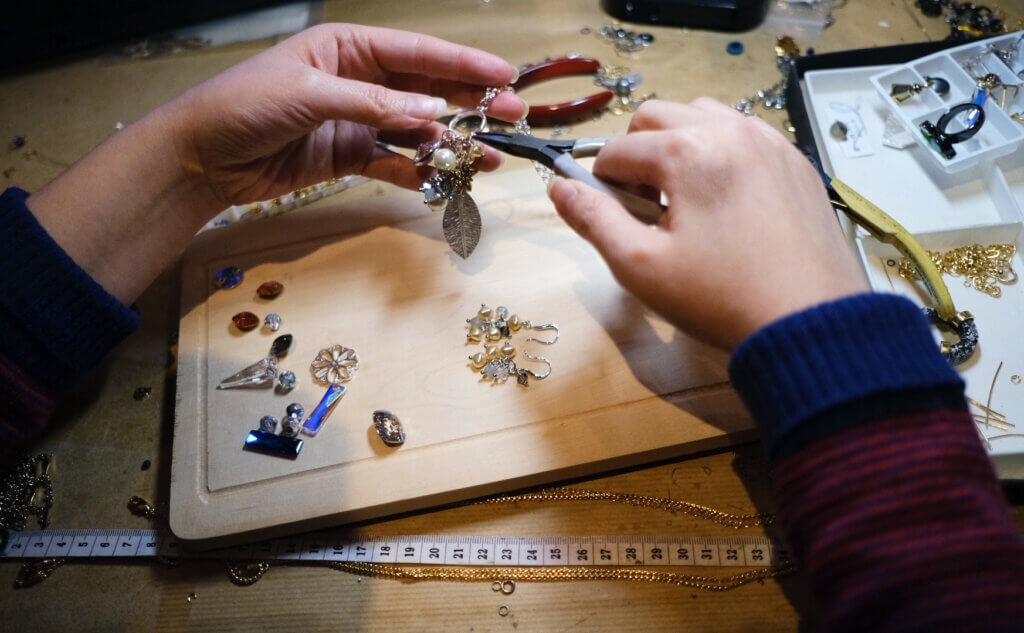
The term ‘handmade jewelry’ covers an extensive selection of both techniques and materials, which can all be used to create beautiful pieces of jewelry to wear and admire. There are really no rules for style, but there are very different skill sets required for each technique. Here are the 7 Handmade Jewelry Style Tips For You.
We’ve assembled many handy jewelry styles and fashion tips and tricks to help you wear fine, fashion, and costume jewelry that complements your sense of style, personality, and wardrobe. Check this out.
Finding Your Style with Handmade Jewelry
1. Wire Wrapped Jewelry

Handmade wire wrapped jewelry is easy to spot: It uses a lot of wire! Most jewelers use wire wrapping to create pendants or charms with stones and beads.
At its simplest, wire wrapped jewelry is a decorative frame embellished with other ornaments attached with wrapped wire coils.
But some wire wrapping experts can create very intricate and delicate designs with wire weaving techniques that are quite labor-intensive.
Depending on the design, makers can use a few different gauges of wire. They may choose to use a thicker gauge for simple framing designs, while the intricate woven designs require thinner gauges.
Makers will also need to take note of the wire’s temper for their project. For example, a dead soft wire will be much easier to wrap many times than a full hard wire.
2. Assembled Jewelry Making
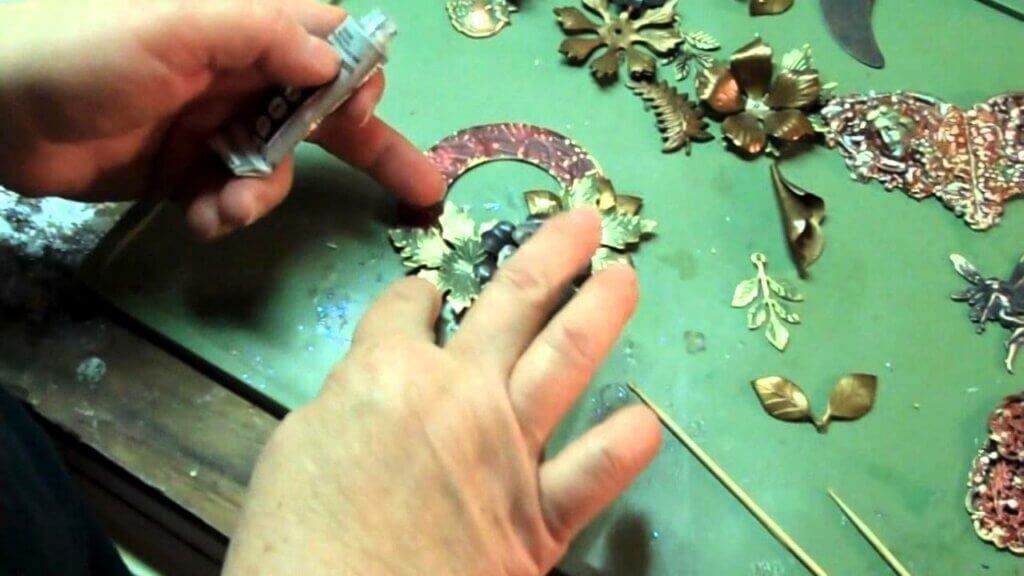
Hand-assembled jewelry is the simplest type of handmade jewelry. It’s a great way to offer unique and personalized jewelry at an affordable price.
This usually involves creating necklaces, earrings, and bracelets from pre-made charms, chains, and jewelry findings.
It is also easy to learn simple assembly techniques in just a few days, so it is the perfect way to start jewelry making.
3. Beaded Jewelry
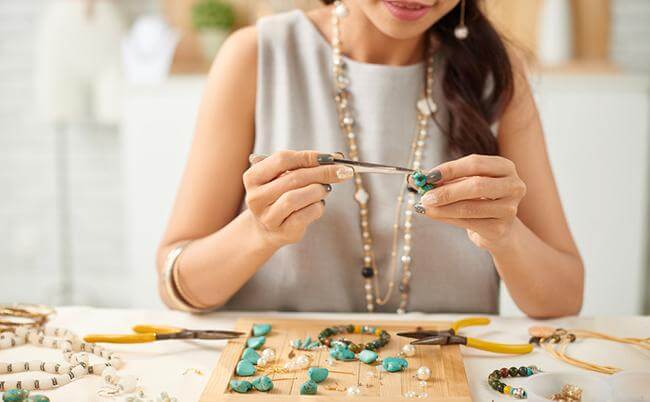
Handmade beaded jewelry can be some of the simplest or most intricate jewelry designs, depending on which beads are used. Makers can use beads on a single strand of stringing material to create bracelets and necklaces.
Some of these beads may include letters or numbers for personalization, fun-shaped beads to show off interests, or a large statement bead with smaller ones framing it.
However, with quite a bit of practice and some very tiny beads, makers can create larger and more intricate designs.
The fun part about beads is that they can be incorporated into most jewelry types as accent pieces. A beaded necklace is a fun alternative to a simple chain for hanging your centerpiece creation.
And beads are also available in various materials. Glass beads are one of the most intricate and delicate handmade beads.
4. Enameled Jewelry
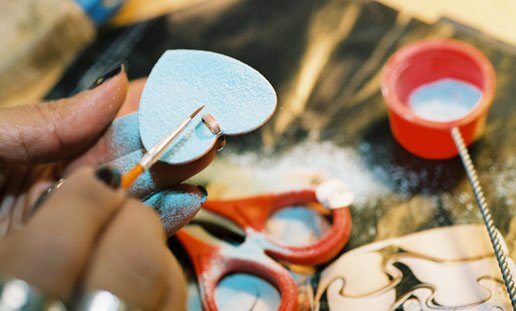
Handmade enameled jewelry is a great way to add pops of color to your metal jewelry pieces. Enameling is basically fusing glass powder to the surface of metals to create a permanent bond.
There are different ways to add enamel to handmade jewelry. Also, the most popular technique today is torch-firing.
This is considered a simpler, more affordable enameling technique as you can use your soldering torch to heat the enamel on your metal.
Most enameling techniques require a kiln that heats the jewelry piece more gently than a soldering torch would.
5. Hand Stamped/Engraved Jewelry
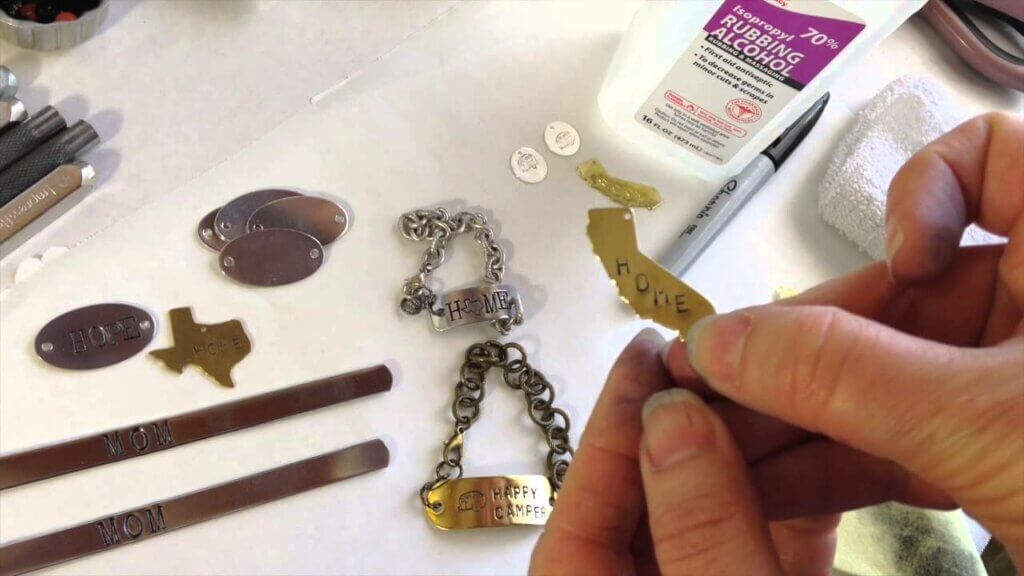
This is one of the most popular types of handmade jewelry today. Hand stamping allows a maker to create personalized custom jewelry for customers easily. It only requires simple tools and techniques, so it’s an easy craft to begin.
Designs are created by hammering a metal stamp impression onto a metal blank. Most of these tools are readily available to hobbyists and professionals alike.
Engraving handmade jewelry allows for more details in a design. However, it also requires greater skills and/or special equipment.
When a jeweler’s hand engraves a piece, they must take a sharpened engraving tool and cut a hand-drawn design. This technique usually takes quite a bit of practice and time.
6. Fabricated Jewelry
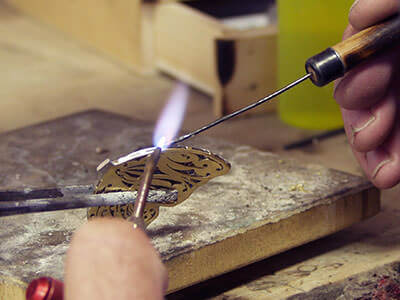
Handmade, fabricated jewelry covers a wide range of jewelry styles, from traditional gemstone rings to wildly creative art jewelry.
Fabricated jewelry uses metalsmithing techniques and jewelry bench skills. Jewelers use a metal saw to cut out the piece’s basic shape or cut intricate details in the piece.
Many jewelers use soldering to attach components. This can be as simple as attaching two pieces or as complex as having a dozen solder joins. Fabrication takes time and dedication to learn.
Once a jeweler knows a few basic concepts, they can manipulate the metal in a wide variety of ways. The first collection may be simple.
But as they gain knowledge and practice over the years, their collections can become quite intricate and technically difficult. This is where a lot of the gritty and grimy jeweler’s hands come from!
7. Resin Jewelry
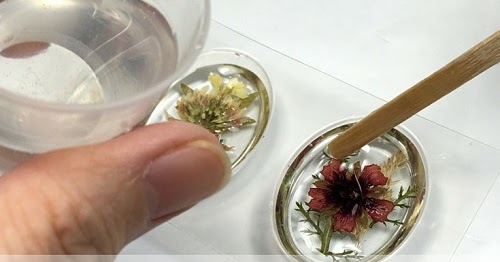
Jewelry fans can easily create beautiful individual pieces themselves using epoxy resin. Due to the versatility of the synthetic resin, there are practically no limits to creativity in design.
The crystal clear material becomes a real eye-catcher with small incorporated elements such as flowers, pearls, or glitter particles.
If you’ve always wondered if you could make resin jewelry in the comfort of your home, the answer is yes. You need a few simple tools.
Are you ready to start making your own jewelry? Whether you’re looking to start a side business, make a career move, or take it up as a hobby, there are many ways to learn.
Starting your handmade jewelry journey at home is great, but you can also go out and go to a class or workshop—7 Handmade Jewelry Style Tips For You.
P.S. Royi Sal Jewelry, as a decades-long leader in silver jewelry design and manufacturing, invites you to download our latest magazine here and profit from the exceptional jewelry designs at affordable prices you will find in the magazine. Click here to download it now.
Share this post

